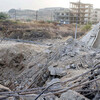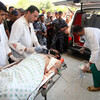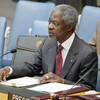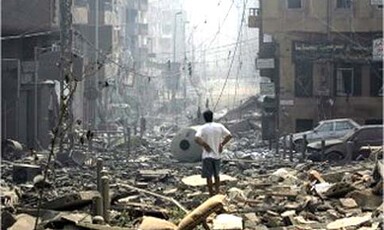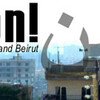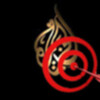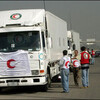
Aid agencies hampered by Israeli strikes
20 July 2006
Humanitarian agencies working in Lebanon say their work is being hampered by continued Israeli attacks on aid convoys and access routes. The International Committee of the Red Cross (ICRC) yesterday reiterated its 13 July appeal to both parties involved in the conflict in Lebanon to “respect humanitarian volunteers and workers and the Red Cross and Red Crescent symbols”. This call follows an attack on Tuesday by the Israel Defense Forces (IDF) on a convoy of ambulances and trucks, sent by the United Arab Emirates Red Crescent (UAERC), on the road between Damascus and Beirut. Read more about Aid agencies hampered by Israeli strikes
